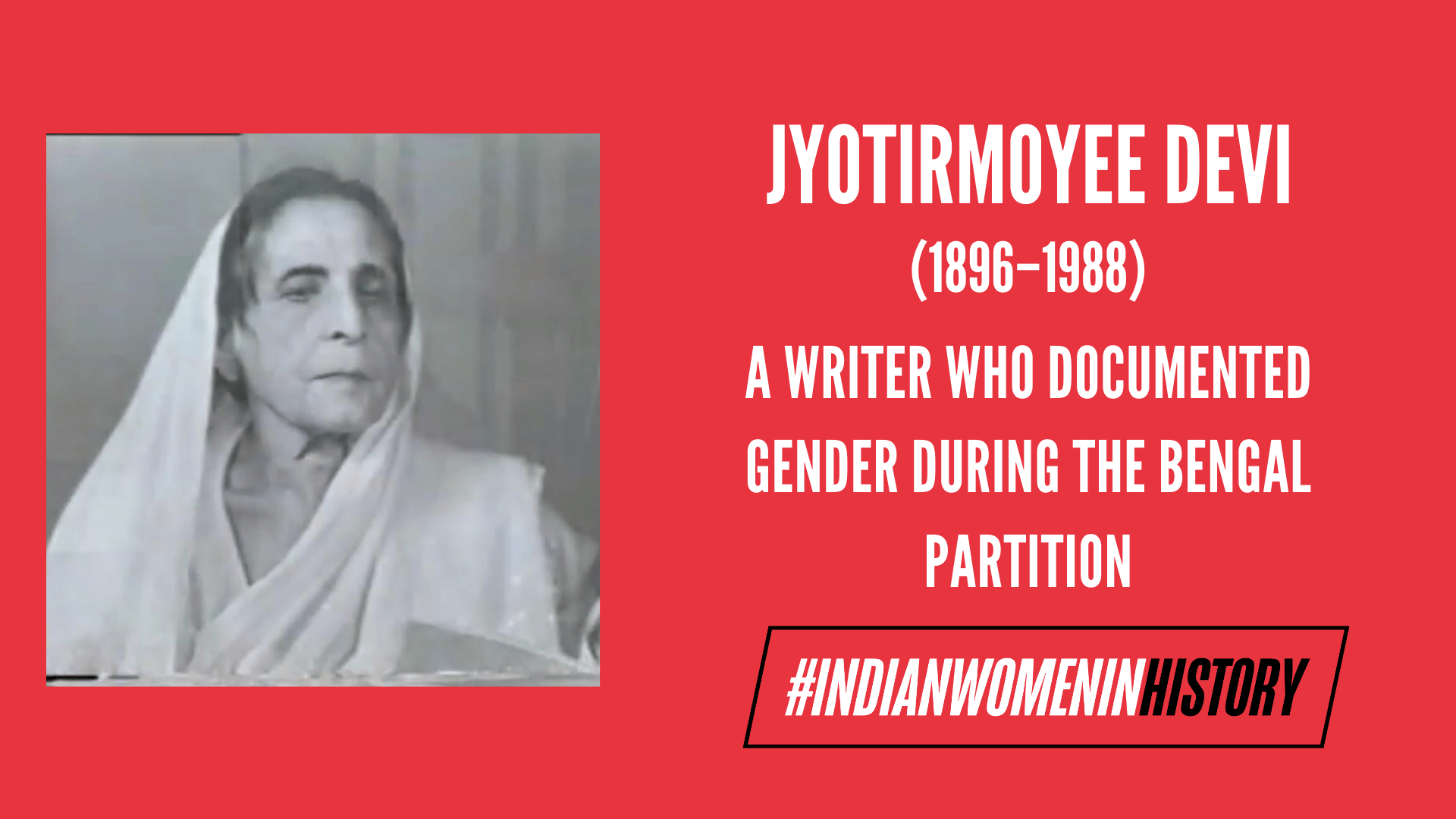Jyotirmoyee Devi is considered to be one of the pioneer women writers who captured the collective memory of the infamous Partition of Bengal that happened in 1947, along with the implications of the aftermath of such a political event. This deadly Partition on the Eastern Front, just like the one in Punjab, was followed by cross-border migrations while also marking a period of extreme communal violence that agonized and scarred several families.

Author of the famous Partition novel—‘The River Churning’, Jyotirmoyee Devi mainly depicted the lives of the women in Bengal who bore the burden of this communal divide, their bodies being inflicted with sexual violence, rape and social exclusion as a consequence to the former two. Owing to the dearth in the literature that records such gruesome atrocities that were inflicted upon women, her work becomes extremely important. She also wrote about the life of the women and little girls of Rajasthan, and the discriminatory gender and caste norms that policed and defined their existence.
Author of the famous Partition novel—‘The River Churning’, Jyotirmoyee Devi mainly depicted the lives of the women in Bengal who bore the burden of this communal divide, their bodies being inflicted with sexual violence, rape and social exclusion as a consequence to the former two. Owing to the dearth in the literature that records such gruesome atrocities that were inflicted upon women, her work becomes extremely important.
Early Life
Jyotirmoyee Devi (1894-1988) was born in Jaipur in an upper-caste and economically well-off family. Her grandfather who earlier being a schoolmaster, rose to occupy a high administrative position immediately thereafter. Jyotirmoyee’s place of birth had a profound impact on her writings in the later years.
Not being given an opportunity for formal education, her sole means to establish a relationship with reading became her grandfather’s library where she, along with her sister, were assigned to arrange newly arrived books and magazines. Therefore, even though a little girl, she attempted to make use of her multiple privileges that could be translated into an access to books and writing material while also remaining unquestioned by the elders of the family for seeking such an informal education.
This continued till she grew up to the age of ten beyond which very few girls were allowed to educate themselves as they were supposed to be trained for a married life, something that entailed learning domestic chores, hence curtailing their childhood at a very young age. Her daughter, Ashoka gupta, who grew up to be a social worker, mentions in an interview that even though being married to a lawyer at the minor age of ten, her mother was given a free will to pursue reading and writing unlike many of her contemporaries.
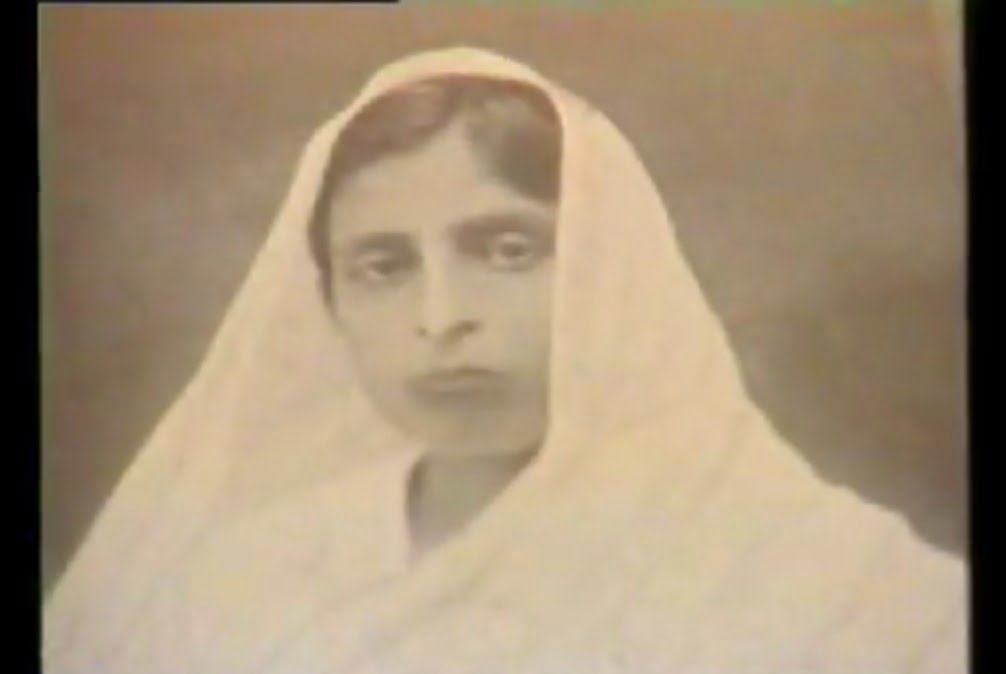
In a span of ten years, Jyotirmoyee had six children and this followed her husband’s demise due to influenza. Being widowed at the age of twenty-five and after having to come back to her parents’ house, she was to disassociate herself from any kind of social life. The Hindu norm of widowhood for women, for those who belonged to upper castes, meant a life of social ostracism wherein they were expected to confine themselves within their home boundaries. Widows were to remain chaste after their husband’s death and their remarriage was considered sacrilegious. Thus, religion seemed to dictate their lives throughout.
Whilst being confined by orthodox traditions and being secluded according to such religious instructions, reading became Jyotirmoyee’s outlet to the outside world while writing offered her a new life of comfort and solitude. She gave herself an opportunity to foster the aspiring writer within her and to claim a space for the same. After spending a long while in Rajasthan, Jyotimoyee moved to Bengal thereafter.
She was aware of the sociological aspects of the settings from which her stories were drawn, mainly focusing on the living conditions of women and the social expectations that hounded their lives in several ways. Having lived a life in Bengal and Rajasthan resulted into an amalgamation of cultures that posed an immense influence on her thinking prowess, thus broadening her mindset and making her question the status of women’s rights in her writings.
In 1922, her poem was published in the leading Bengal magazine ‘Bharatvarsh’, for the very first time.
The Writer
In Raja Sen’s documentary-drama for Doordarshan titled, ‘Jyotirmoyee Devi’ (1994)—Mahasweta Devi, one of the most coveted and socially conscious women writers, defines Jyotirmoyee as an ‘extremely alert and conscious writer, whose writing was mainly cerebral’. She was aware of the sociological aspects of the settings from which her stories were drawn, mainly focusing on the living conditions of women and the social expectations that hounded their lives in several ways. Having lived a life in Bengal and Rajasthan resulted into an amalgamation of cultures that posed an immense influence on her thinking prowess, thus broadening her mindset and making her question the status of women’s rights in her writings.
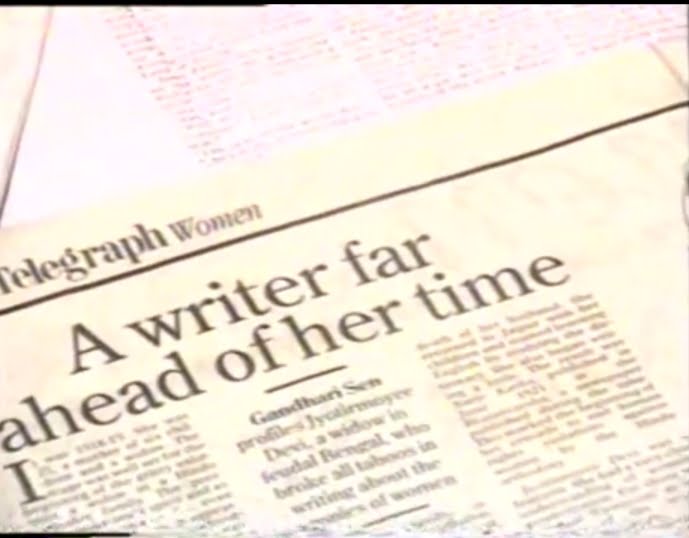
Her work reflects the memory of the Partition in terms of women’s experiences as well their exclusionary social life that ensued thereafter, thus questioning the very expectations of the ideas of ‘independence’ and ‘patriarchal nationalism’ and the price that the marginalised identities were forced to pay for it. Her stories steer clear towards the point that the idea of nation-formation and borders at the behest of a Partition could not be recorded into history without mentioning the sufferings that befell hundreds of women as a result of a patriarchal outlook towards their bodies.
Also read: Urvashi Butalia: The Historian Who Revived The Forgotten Voices of Partition
Literary Works
Having spent most of her childhood in Rajasthan, a significant chunk of Jyotirmoyee Devi’s writings also included stories that centred around the restricted lives of the little girls and women of the region. For instance the opening minutes of Raja Sen’s documentary enact one of her short stories, ‘Beti ka baap’ (Daughter’s father) that calls for attention towards the evil of female infanticide and the limited social interaction that young women were allowed to engage themselves in.
Her short story ‘Shei Chheleta’ (That Little Boy) is a commentary on the body of the woman being allegorised and perceived as a site of familial honor and hence, any kind of violence inflicted upon them led to their abandonment. Owing to limited or no economical independence, such women were rendered to beg and plead for their livelihood most of the time.
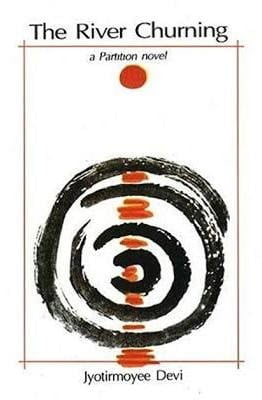
Similarly, while exploring her Partition novel, Epar Ganga Opar Ganga ‘The River Churning’, one can deduce that the chastity of a woman was to be linked to their identity, thus the metric to define their ‘holiness’ was the absurd and outrageous concept of purity. The social consequences of having been a survivor of rape or sexual violence ended up being life-long ostracism. The novel also makes efforts to challenge the erasure of the tragedies endured by women across communal and religious identities.
Her non-fiction work includes writings about the rights of Dalits (the author of this article has not been able to explore yet) although it is hard to comment on the levels of authenticity with which their experiences might have been recorded, since she herself came from a privileged caste position.
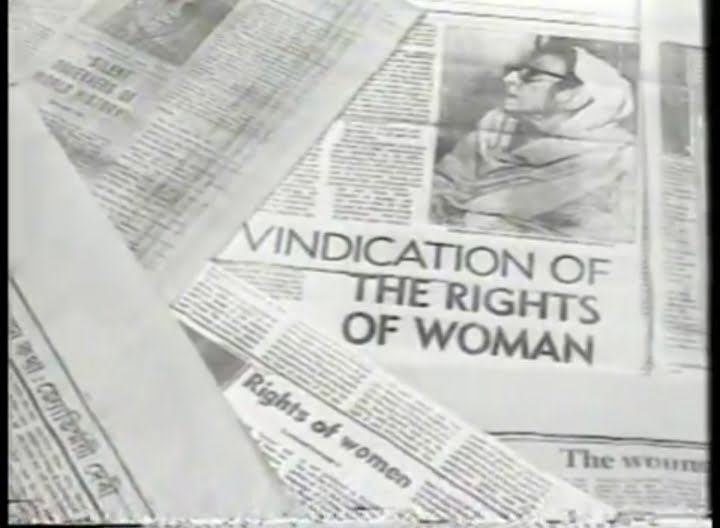
Her collection of short stories, ‘Sona Rupa Noy’ (Not Gold and Silver) won the Rabindra Puraskar in 1973.
Also read: Attia Hosain: A Radical Muslim Writer And Archivist Of The Partition…
Jyotirmoyee Devi’s politics can be concluded through the focus of her writings and the themes around which they are centred. As a part of her political career, she served as the vice-chairperson of the ‘All India Women’s Conference’ for a short while and was considered by many to be quite ahead of her time. Her fiction and non-fiction work carries immense significance even years later after her demise in 1988.
The Partition of Bengal in 1947 into West Bengal (which is a part of India) and East Pakistan (now Bangladesh) entailed severe consequences on the demographics of the region and women writers like Jyotirmoyee helped locate the presence and experiences of women in the larger national struggle for Independence.
References
- Documentary on Jyotirmoyee Devi by Raja Sen
- Jyotirmoyee Devi (1894–1988), StreeShakti
- Disenfranchised Bodies: Jyotirmoyee Devi’s Writings on the Partition
- The River Churning: Re-Locating The ‘Woman’ In Partition History
About the author(s)
Nidhi is an undergraduate student, pursuing English Literature and Political Science from St. Stephen's College. She is someone who's trying to understand the ways in which intersectionality and feminist politics have been shaping her evolving thoughts and ideas. Her new found interests include reading Urdu Poetry, listening to folk music and blogging.
